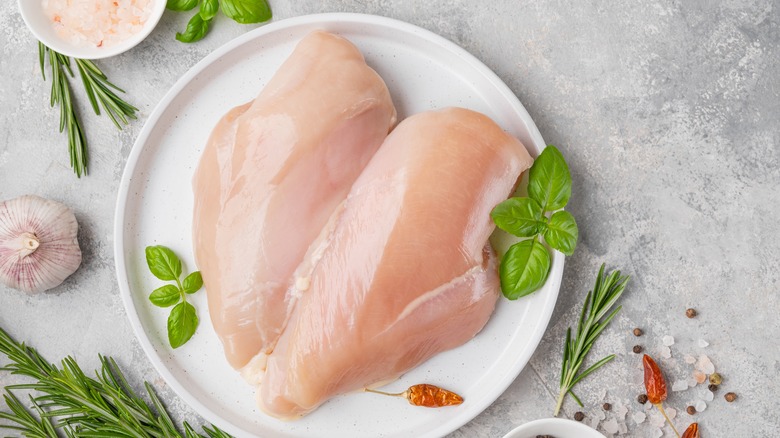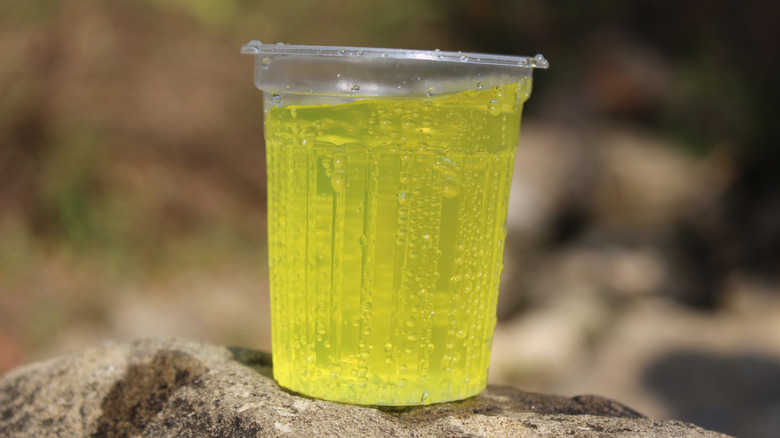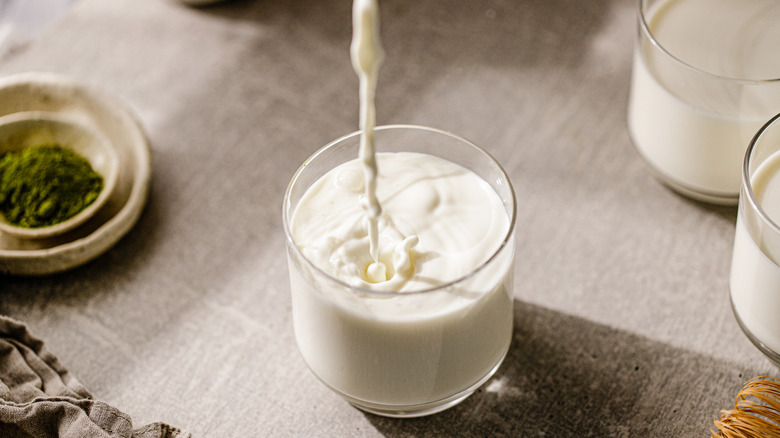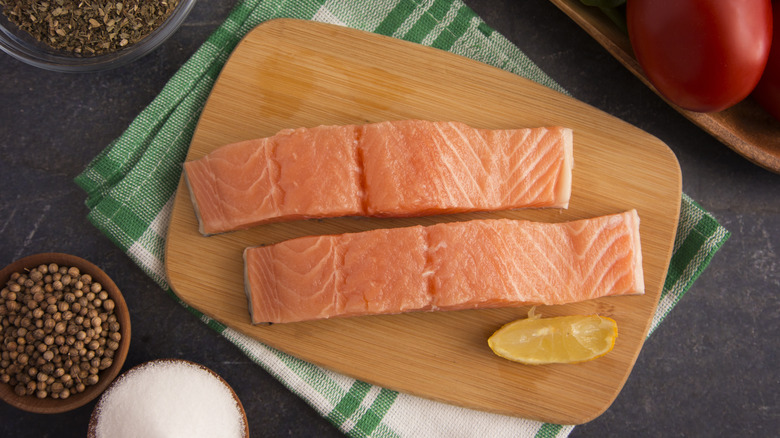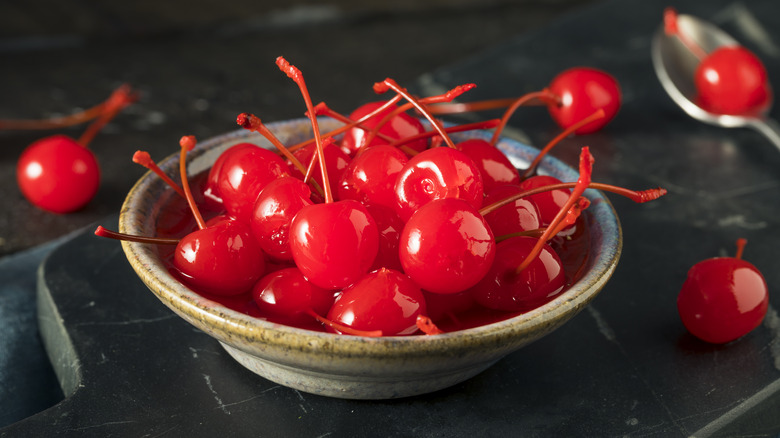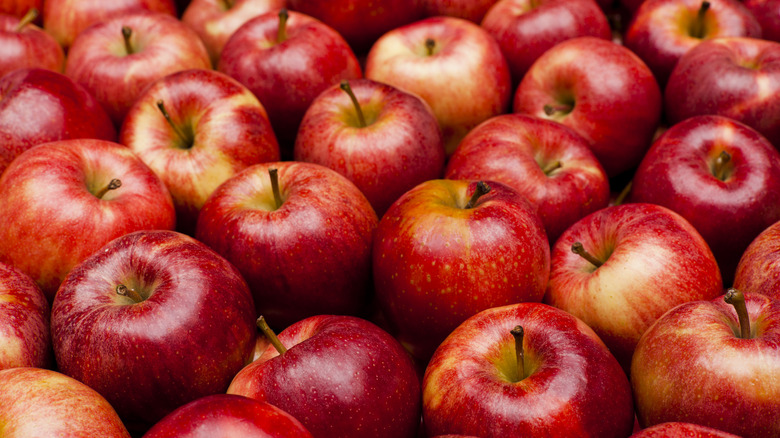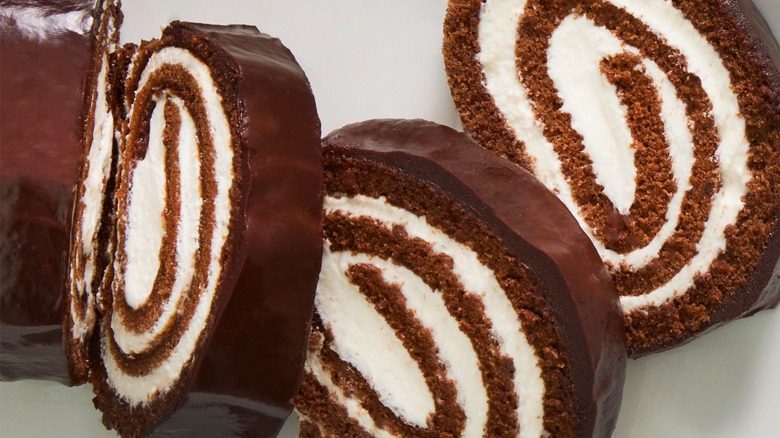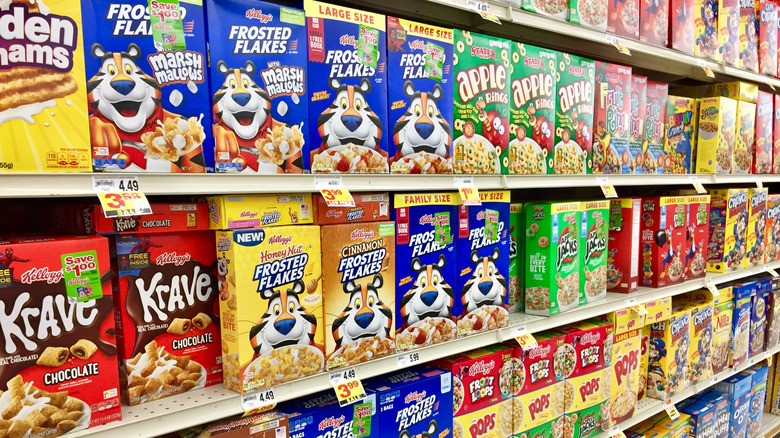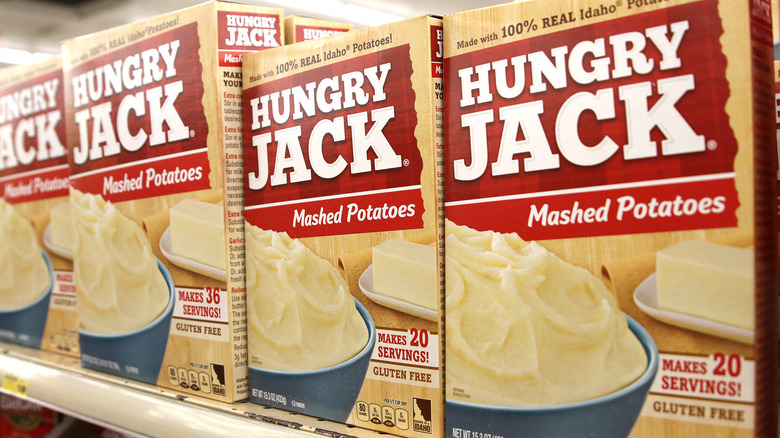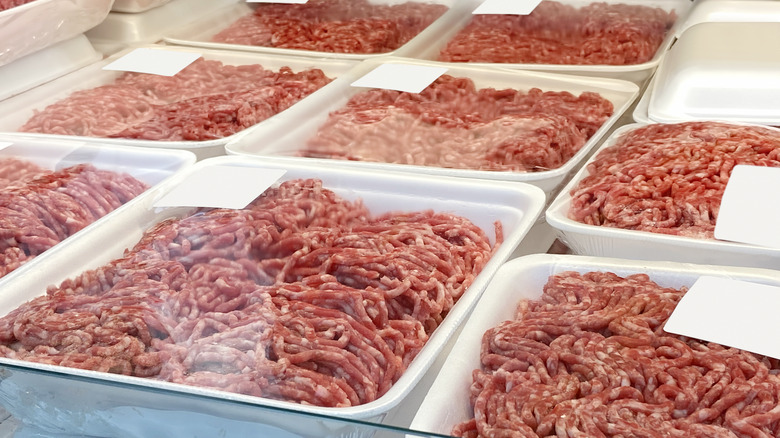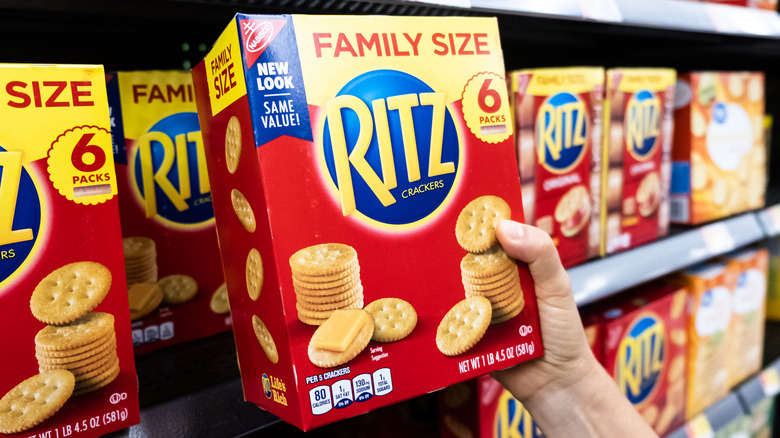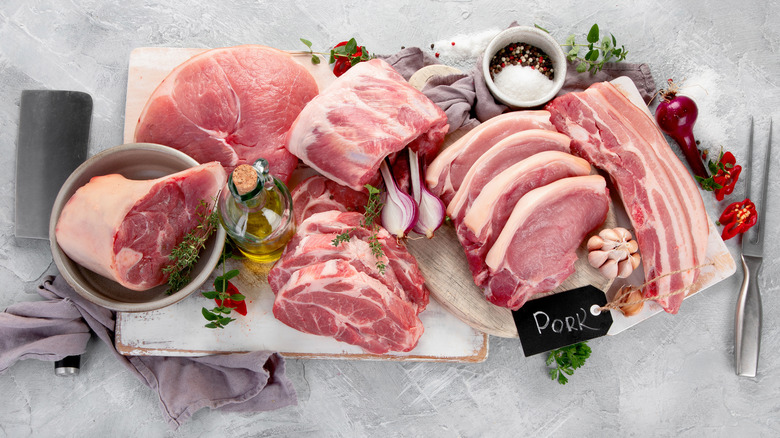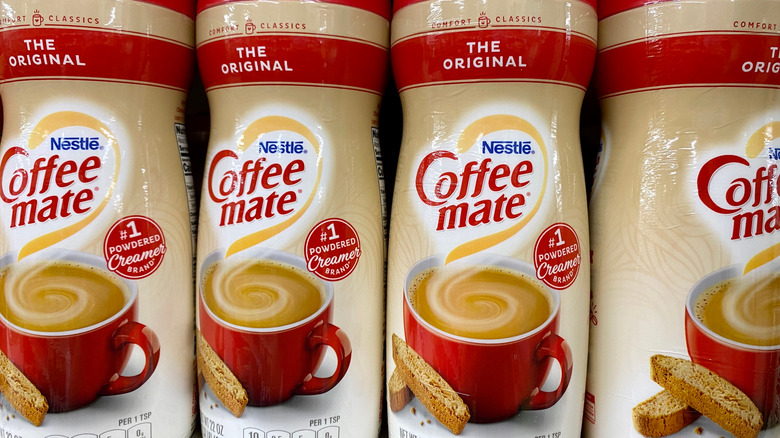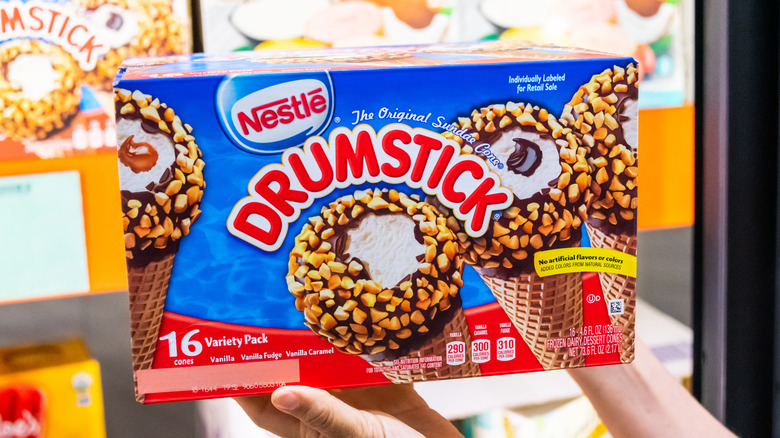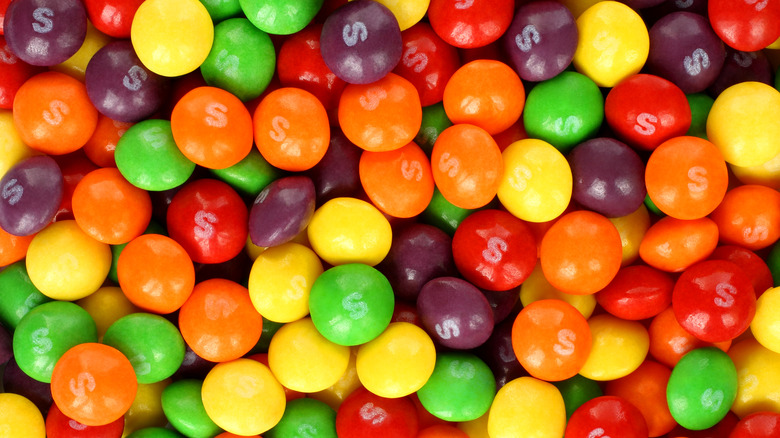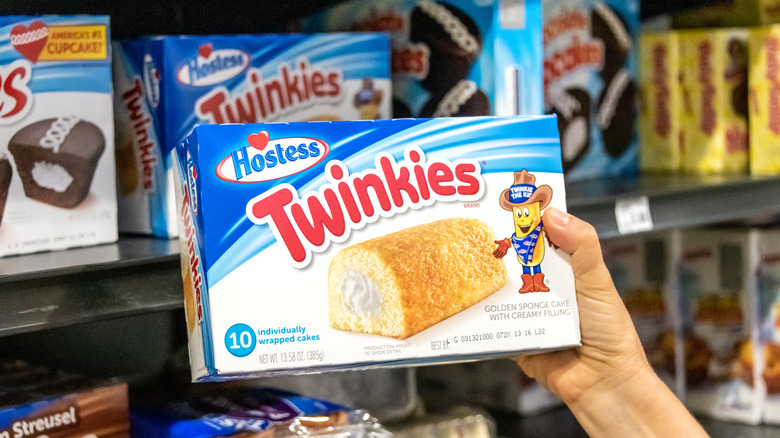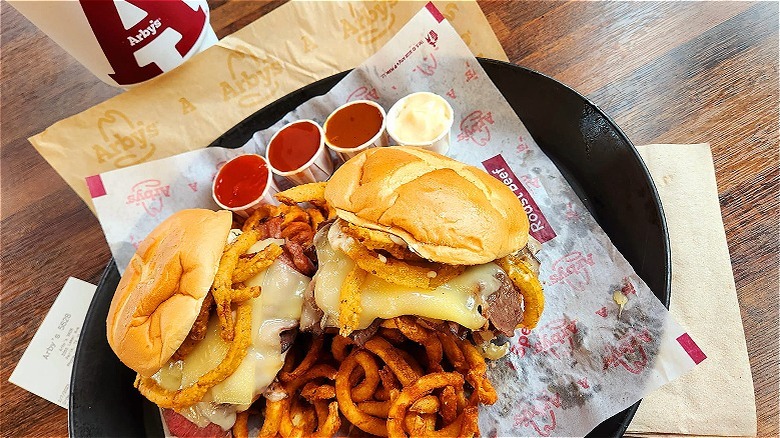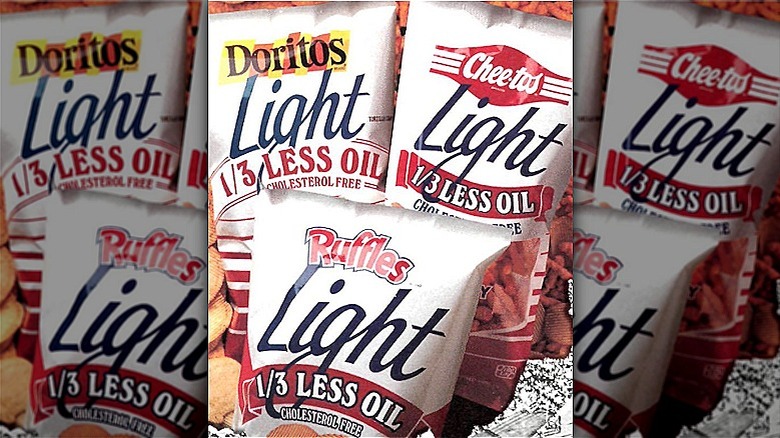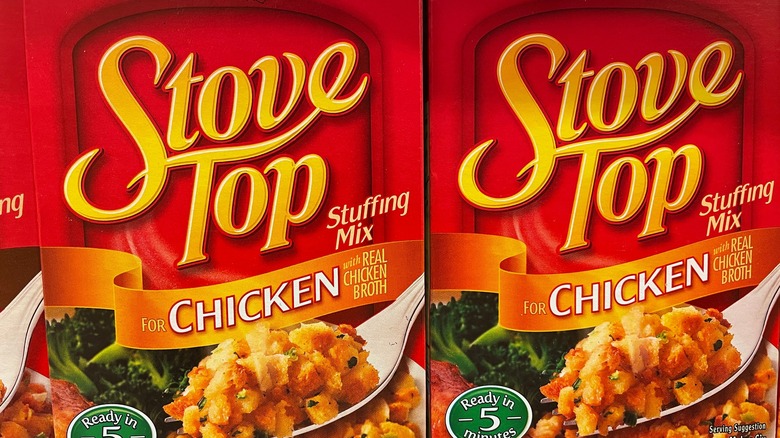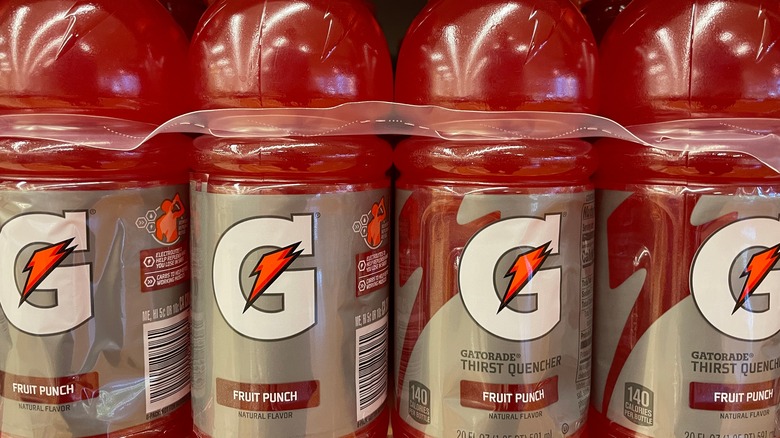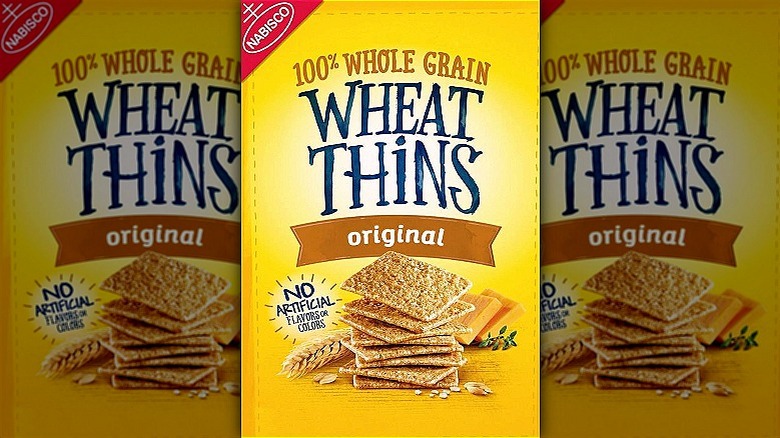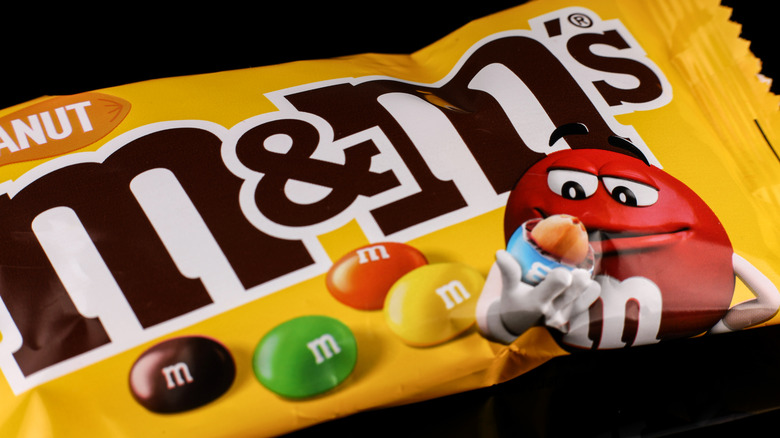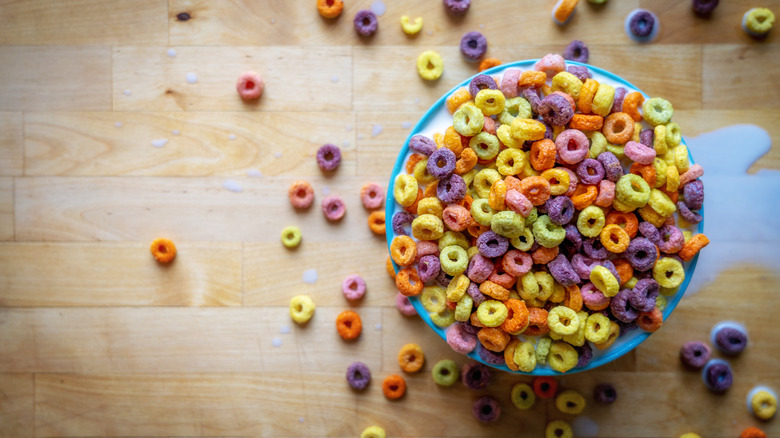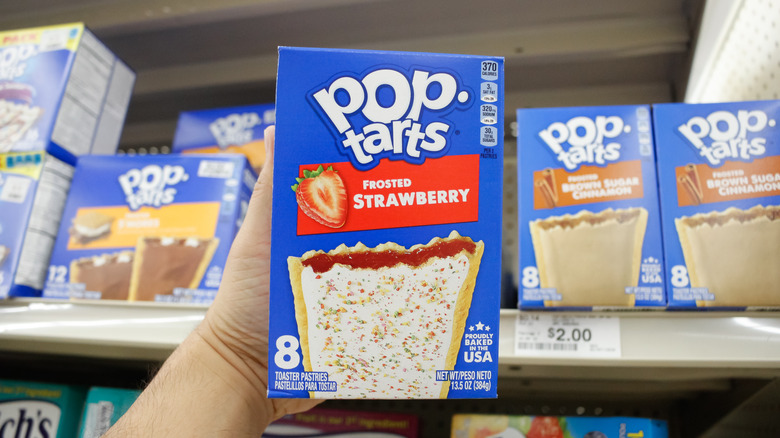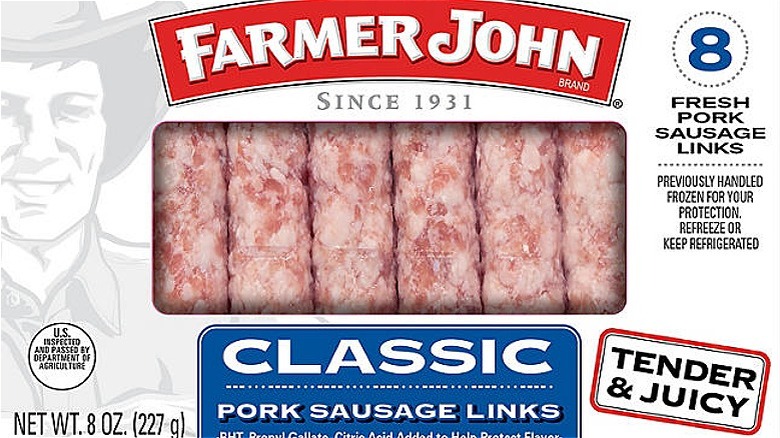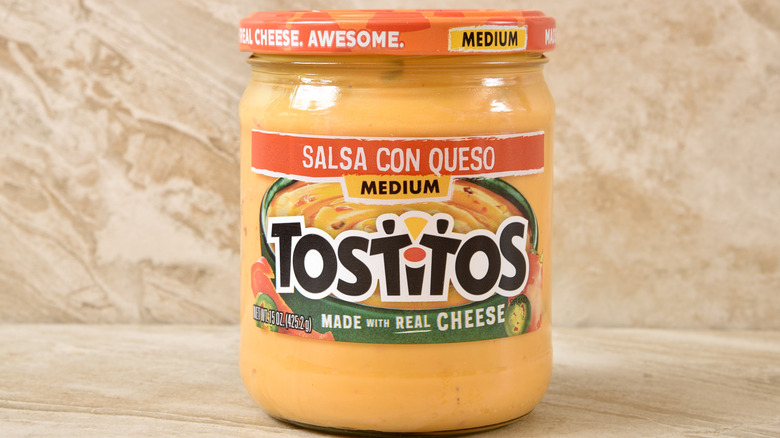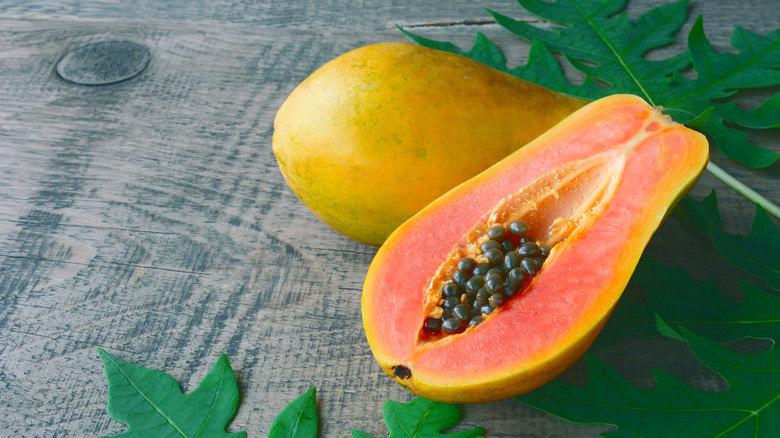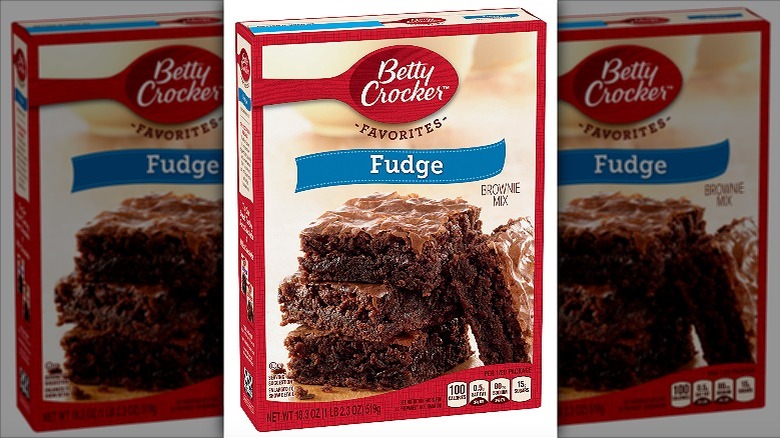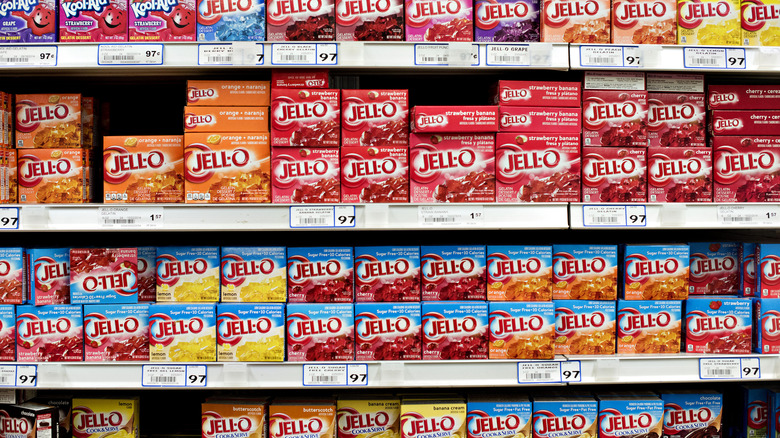29 Foods Banned Around The World
Every country around the globe has different laws and regulations regarding what is or is not legal for its citizens to consume. Though some globally agreed-upon banned substances exist, some countries are more or less restrictive where certain preservatives, food additives, and food processing methodologies are concerned.
This can often translate to oddities like some people insisting they can eat bread in Europe when it makes them sick in the U.S. or that they can drink red wine in Argentina but not from Napa. This isn't necessarily all in their heads but indicative of different standards of what is considered healthy or toxic by varying regulatory bodies.
The following is a comprehensive list of foods banned in various countries globally that may surprise you. While some products have repeat offenders behind their bans, such as food dyes, others are more curious, sometimes involving cultural or political reasons. Regardless of the underlying culprit, it may make you think twice about consuming these products yourself the next time you see them at the grocery store. And it will likely make you more conscious of reading labels on food items to see what exactly is in the foods you enjoy eating the most.
1. U.S. chicken
The European Union has banned the import of U.S.-produced chicken since 1997, citing the practice of a chlorine-washing process to disinfect poultry after it has been slaughtered and processed. The process, which is only used in 10% of U.S. poultry processing plants, has been deemed safe by the USDA. It involves using chlorine rinse with 18-30 parts per million (PPM) chlorine to eliminate microorganisms like Salmonella and Campylobacter.
This ban has less to do with the safety of a chlorine rinse and more with concerns over poultry producers taking shortcuts and being more careless with how animals are raised. The EU has strict regulations regarding how much space, lighting, and ventilation are required in poultry-rearing houses. And because a chlorine wash is deemed a method for processing rather than an ingredient, it is not labeled on U.S. poultry, preventing a consumer from making an educated purchasing decision.
2. Citrus sodas
Though one might think the excessive caffeine and sugar in citrus-flavored fizzy drinks got them banned in the European Union and Japan, the real reason they are off limits is the inclusion of small quantities of brominated vegetable oil or bromine. Bromine is used as an emulsifier keeping the citrus flavorings from separating from the other ingredients in this beverage. Though the amounts used are considered by the FDA as Generally Recognized as Safe (GRAS), researchers abroad disagree.
According to Scientific American, in high quantities, this chemical that was developed for use as a flame retardant has been linked with myriad medical issues, including memory loss, neurological conditions, hormonal disruptions, and reproductive health issues. Even in smaller quantities, there appears to be evidence that bromine accumulates in the body over time and is particularly risky in children.
3. U.S. milk
Milk produced in the U.S. is banned in the European Union and several other countries due to the regular use of the growth hormone rBGH or rBST. The injection of this hormone into dairy cattle can improve yield by up to 20%, which amounts to higher profits. While the FDA considers the use of the hormone to be Generally Recognized as Safe (GRAS), several research studies have indicated otherwise.
According to Life Hack, its use has been linked with an increased risk of colorectal, prostate, and breast cancers in adults. There is also concern regarding the link between increased milk production in cattle and bacterial infections of the udder, which results in the need to treat cattle with antibiotics, which may or may not end up in the milk. The rise of antibiotic-resistant bacterial infections has raised alarm bells, with some blaming eating meat or dairy treated with excessive antibiotics for the rise.
4. Farmed salmon
Farmed salmon has been banned in New Zealand and Australia because of the use of synthetically manufactured astaxanthin in its production. Astaxanthin is a naturally occurring antioxidant often found in fish and shellfish, giving its flesh a reddish hue. In its natural form, astaxanthin may confer numerous health benefits. However, according to Molecules, the safety of its synthetic iteration, which is isolated from petrochemicals, has been met with concerns over potential toxicity and lack of bioavailability.
Because of how farmed salmon are raised, namely on a diet rich in grains and swimming in waters that may be contaminated with chemicals and antibiotics, the skin of this farmed salmon develops an unappetizing grayish hue. Supplementing this fish with synthetic astaxanthin artificially dyes the fish to create a more natural look, resembling wild-caught salmon. Beyond this, numerous issues regarding the sustainability and environmental impact of farming salmon exist, bringing its ethics into question.
5. Maraschino cherries
While you may have heard that maraschino cherries contain formaldehyde, this assertion is a myth and not what has caused them to be banned in several countries. The primary reason these red beauties have come under scrutiny involves the application of Red dye 40, or Allura Red, which creates the quintessential bright hue we're used to seeing.
This dye is synthesized from petroleum distillates or coal tars. Though approved by the FDA, according to Healthline, these have caused concerns regarding behavioral changes in children, such as hyperactivity. Healthline also states that Red 40 is known to contain minimal quantities of the carcinogen benzidine, which has been linked with an increased risk for bladder cancer.
Though some maraschino cherries are made with natural ingredients — including natural dyes like beet juice — labeling can be challenging to read, making many reluctant to consume them.
6. U.S. apples
In 2014, the European Union banned the import of U.S. apples. According to Mother Jones, this happened because of ongoing concerns over the use of the chemical diphenylamine, or DPA, as a treatment to help prevent them from developing brown spots post-harvest. This chemical is the only EPA-approved pesticide currently used to extend the shelf-life of apples, making it an indispensable part of the U.S. apple industry.
The EU maintains that DPA may dissolve into carcinogenic compounds known as nitrosamines after consumption. As such, it has limited the amount of DPA allowed on apples to 0.1 parts per million. In analyzing U.S. apples, it was discovered that 80% contained DPA residue at a level of 0.42 parts per million, or four times the EU limit. As a result, apples from the U.S. are a no-go until further safety research is conducted to prove the safety of DPA.
7. Little Debbie Swiss Rolls
Swiss Rolls are tasty pastries, but they are also considered potentially hazardous foods. This is not due to the fat and sugar content but because of food dyes, including Red 40 and Yellow 5. As previously noted, Red 40 has been met with skepticism. Concerns exist over potential carcinogenic properties and links to children developing hyperactivity.
Yellow 5 has provoked similar concerns, even though it has been deemed safe by the FDA, as noted in Healthline. Studies indicating potential behavioral changes in preschool-aged children and possible toxicity to white blood cells with repeated exposure have prompted the EU broadly to require labeling of products containing Yellow 5 and Red 40.
According to Healthline, these warnings read: "May have an adverse effect on activity and attention in children." Some countries, like Austria and Norway, have taken these concerns further by banning these dyes altogether.
8. U.S. breakfast cereals
Breakfast cereals are convenient and tasty, but according to Japan, Europe, Canada, Australia, and New Zealand, many of which are banned due to concerns over the inclusion of Butylated Hydroxyanisole (BHA) and Butylated Hydroxytoluene (BHT) in the ingredients. These preservatives are integral in keeping oils within foods from oxidizing, thereby increasing the shelf-life of these foods. While the FDA views this as safe, other regulatory agencies beg to differ.
According to the Campaign for Safe Cosmetics, several studies have established these chemicals as carcinogenic. Others have linked them to issues with irritation of the respiratory system. And the European Commission on Endocrine Disruption has deemed BHA a likely endocrine disruptor, which can adversely impact numerous bodily functions. And finally, there are credible concerns over reproductive, developmental, and organ toxicity.
9. Instant mashed potatoes
Instant mashed potatoes are arguably a quick, easy, and affordable substitute for fresh potatoes to create a relatively healthy side dish on a busy weeknight. Ignoring the debate as to which tastes better — made from scratch or instant mashed potatoes – there is another issue to consider. Because instant mashed potatoes are made by dehydrating potatoes, preservatives – Butylated Hydroxyanisole (BHA) – are added to prevent these desiccated spuds from becoming rancid.
As previously noted, BHA and BHT are chemicals coming under repeated scrutiny for their potential carcinogenic, toxic, and irritant properties. For this reason, they have been banned in Japan, Europe, Canada, Australia, and New Zealand. If the citizens of these countries want mashed potatoes, they will have to peel and boil those potatoes first.
10. U.S. packaged ground beef
Pink slime, according to Return to Now, was labeled as "lean finely textured beef" on packages until 2019. It's essentially a meat filler that enables producers to minimize waste by utilizing every part of the cow. Meat scraped off of bones, including connective tissue, which tends to be highly susceptible to contamination by pathogens, gets ground together and is treated with ammonia to help eliminate these pathogens.
This is often combined with ground beef to help increase its volume and decrease the total percentage of fat content in the meat. Once merged, you cannot decipher the ground beef from the meat filler, and the USDA no longer requires labeling to differentiate beef with this filler added. Concerns over the safety of ammoniated beef have led other countries, like Canada and Europe, to ban U.S. ground beef.
11. Ritz crackers
Ritz crackers are hard to come by in some countries because of the addition of the chemical potassium bromate in its ingredients. Potassium bromate is an additive often incorporated into baked goods of all kinds to help create a more palatable texture. Though the FDA considers it Generally Recognized as Safe (GRAS), it has been banned in several countries, including the European Union, Canada, Brazil, and China.
According to Eating Well, potassium bromate has been deemed a potential human carcinogen by the International Agency for Research on Cancer. It has also been linked with producing oxidative damage to free radicals within the human body. Anecdotal evidence has also suggested gastrointestinal discomfort in some, which may be contingent upon the volume and length of exposure to the chemical. As such, many companies are switching to different additives to enhance the volume and texture of baked goods.
12. U.S. pork
The use of the growth hormone ractopamine in the production of pork from the U.S. has led to the ban of these products in China, Russia, Taiwan, and the European Union. Ractopamine is often fed to pigs to increase bulk by improving muscle mass and decreasing fat concentration. Though generally considered safe by the FDA, a lack of adequate research into the safety of ractopamine for human consumption has led to precautionary bans.
Its impact on animals is clear, with multiple health problems noted, including cardiovascular issues and downers, which causes pigs to lose mobility. According to Michigan State University, ractopamine is predominantly metabolized within the liver of pigs, seldom remaining within the muscular tissue. However, it can be found at higher levels in organ meats, which though not often consumed in the U.S., are far more commonly consumed in other countries, prompting concern over the safety of ractopamine.
13. Coffee Mate creamer
Coffee Mate creamer has been around since 1961, becoming one of the most popular coffee creamers in the U.S. Unfortunately, due to restrictions on trans fats, including partially hydrogenated vegetable oils, this product has been banned in countries like Denmark, Switzerland, Austria, Norway, Iceland, and Hungary. This ban requires that all processed foods be limited to just 2% of trans fat per serving.
Though Coffee Mate claims that it is trans-fat-free because it contains less than 0.5 grams of trans fat per tablespoon serving, it is not free of trans fats. Furthermore, most people use more than this per cup of coffee and drink multiple cups of coffee per day. Trans fats have been linked with adverse health outcomes, including obesity, diabetes, coronary heart disease, and respiratory issues like asthma. This has prompted the World Health Organization to initiate a concerted effort to curtail or outright ban the use of trans fats globally.
14. Nestlé Drumsticks
If ice cream is manufactured with carrageenan, the European Union will not allow it — which explains why Nestlé Drumsticks have been banned there. Carrageenan is an additive frequently utilized to improve the texture of items like ice cream. It can thicken and emulsify foods, giving them a more silky, smooth texture. Unfortunately, the product, derived from red seaweed, has come under scrutiny for several purported health risks.
Not only has it been linked with gastrointestinal issues, but according to Principles of Healing, research has shown that it can cause inflammation in the body. Several diseases, including Alzheimer's, Parkinson's, cancer, and heart conditions, have been attributed to increased inflammation. And finally, prolonged use of carrageenan has been associated with decreased glucose tolerance, which can be a precursor to developing diabetes.
15. Skittles
Skittles candies are known for their fruit-like flavors. Unfortunately, they are also known for containing toxic levels of the food additive titanium dioxide. Titanium dioxide is a product derived from titanium used to tint foods. Though approved by the FDA, in 2022, the European Union implemented a complete ban on its use in the manufacturing of food products.
This ban by the European Commission followed research conducted by the European Food Safety Authority (EFSA). The research states that it could not rule out the possibility of titanium dioxide being genotoxic, which can result in disrupting DNA or permanently harming chromosomes. In the E.U., if a food additive cannot be confirmed as safe, this is grounds enough to justify a complete ban.
16. Twinkies
Though Twinkies may survive many tests of time, they will not outlive concerns over Yellow 5 food dye, which make them a banned product in Austria and Norway. Throughout the rest of the European Union, they require a safety warning label indicating they may be hazardous to young children.
As previously noted, Yellow 5 has been scrutinized for numerous health concerns, including being potentially carcinogenic and possibly leading to hyperactivity in preschool-aged children. And while not illegal, the amount of sugar in a Twinkie should be considered before eating. Each one contains a whopping 62% of the recommended daily value per the FDA, which is cause for concern or at least deliberation.
17. Arby's breads
Arby's may have the meat, but it also has croissants, French bread sticks, and sourdough bread that is made using a chemical that has been linked to causing cancer, namely Azodicarbonamide (ACA). This chemical is frequently incorporated into bread, including products like Pillsbury breadsticks, to provide fluffiness and give a bright white color to the dough. Though the FDA insists it has thoroughly investigated ACA and is safe for human consumption, the European Union has outlawed it, citing ongoing safety concerns, according to The Guardian.
When heated, as it is during the breadmaking process, Azodicarbonamide is broken down into semicarbazide and urethane. The U.S. Department of Health and Human Services has reasonably determined urethane to be a human carcinogen, and semicarbazide has been seen to be somewhat toxic to animals, but its effects on humans are inconclusive. This information alone should make us wary of consuming bread made with ACA.
18. Doritos light
Doritos Light, and other low-fat iterations of chips and snacks made with the FDA-approved calorie-free, fat-free, cholesterol-free Olestra have been banned in Canada and the European Union. Olestra, dubbed by Time Magazine as one of "The 50 Worst Inventions" of all time, was touted as a miracle product by Procter and Gamble when it was introduced in 1996.
Sadly the miracle chemical backfired, quite literally. The method by which it eliminated fat from food led to the malabsorption of other vitamins and minerals. It also created horrendous gastrointestinal discomfort in some, including cramps, gas, and leaky bowels. Though the FDA used to require a warning label on products containing Olestra, in 2003, it rolled back those requirements citing the rarity of symptoms developing.
19. Stove Top stuffing
Like instant mashed potatoes and some cereals, Stove Top stuffing has been banned in Japan, Europe, Canada, Australia, and New Zealand due to the presence of Butylated Hydroxyanisole (BHA) and Butylated Hydroxytoluene (BHT) in its ingredients list. These chemicals help keep the stuffing shelf stable by bonding to the oils within the stuffing, thereby absorbing oxygen and preventing the product from becoming rancid.
Unfortunately, this comes at a cost, as these chemicals are potentially carcinogenic and toxic over time. Though the FDA maintains it is safe for human consumption, more companies are seeking alternative methods of preventing dehydrated foods from spoiling, including rosemary extract, which has been approved for use in the European Union since 2010.
20. Gatorade
Gatorade has faced a roller coaster ride of global distributorship since its invention at the University of Florida in 1965. In 2012, the European Union banned the use of brominated vegetable oil (BVO), a primary ingredient in the product at the time, thereby preventing its sale across the continent.
Japan soon followed suit. This led Gatorade to stop using BVO in manufacturing its products, which enabled them to be reintroduced to most of the EU.
Unfortunately, Gatorade has a couple of other issues, namely its use of food dyes, like Yellow 5, banned in Norway and Austria due to concerns about potential carcinogens and links to hyperactivity in children. Athletes in these countries have to get their electrolytes in some other way.
21. Wheat Thins
Yet another Butylated Hydroxyanisole (BHA) and Butylated Hydroxytoluene (BHT) casualty is the beloved snack cracker, Wheat Thins. Its ban illustrates what is fascinating in how different countries interpret the safety of a chemical additive in food is illustrated by the conservative approach other countries take in banning or placing restrictions on the use of certain additives versus the FDA approach.
While the European Union tends to assume an additive is unsafe until proven otherwise, the FDA's GRAS system, which is how an additive is determined to be generally recognized as safe, is filled with loopholes that have allowed corporations to circumvent the FDA or to provide its own proof that an additive is safe. The FDA doesn't have the staff or information necessary to conduct a thorough evaluation of the thousands of additives that receive approval on an annual basis. Additives often have to be proven unsafe for the FDA to remove approval for their use.
22. M&M's
In a non-health related banned food item story, M&M's were banned in Sweden in 2016 due to a trademark dispute. Mondelez, an American-owned corporation that owns the Swedish chocolate-covered peanut brand Marabou, filed a lawsuit claiming that the lowercase "m" used on packages of "m&m" candies was too similar to the lowercase "m" on the Marabou bar packaging and was confusing to consumers. Mars, the company behind M&M candies, disagreed, stating that "no confusion exists," according to BBC News.
Mondelez, which also owns Cadbury and Toblerone, won a previous trademark dispute against Nestle in the U.K. earlier that year. In that case, it was determined that the Norwegian Mondelez was allowed to use a similar shape to the Kit Kat bar in its Kvikk Lunsj chocolates. Don't mess with chocolate in Nordic countries.
23. Fruit Loops
Considering that the rainbow of fruit flavors in Fruit Loops breakfast cereal is as vibrant as those contained in a package of Skittles, it should be no surprise that this sweet treat is banned in parts of the European Union. The reason is the excessive use of food dyes — Yellow 5 and Red 40, considered potentially carcinogenic and linked with hyperactivity in children, are part of the lengthy list of additives.
We also noticed that Fruit Loops contains BHT for freshness, which has been banned in Japan, Europe, Canada, Australia, and New Zealand. It looks like Europeans will have to find a different way to fill up in the morning, which is probably for the best. With sugar being listed second among the ingredients in this cereal, it is a saccharine bomb of chemicals.
24. Pop-Tarts
If you are craving a toaster snack in Austria or Norway, you must find something other than a Pop-Tart to satisfy your taste buds. Food dyes like Red 40 and Yellow 5 make these treats illegal there. In perusing the labels of different flavors of Pop-Tarts, we also noticed a bioengineered food disclosure. Though bioengineered foods, known as genetically modified organisms or GMOs, are not expressly banned in the European Union, they are highly regulated.
According to the European Parliament, the only GMO approved for cultivation is corn, and this is mostly for animal feed. Though 58 GMOs have been authorized for consumption in the EU, these must be accompanied by a warning label when the GMO ingredient makes up at least 0.9% of the food. Non-GMO products can include statements that they do not have bioengineered ingredients, but this is not mandated.
25. Farmer John pork breakfast sausage links
Though the additive Butylated Hydroxytoluene (BHT) is typically added to dehydrated products to help keep the oils within them from oxidizing and making the product rancid, thereby increasing the shelf-life, it is also an ingredient in these breakfast sausage links. This renders them a banned product in Japan, Europe, Canada, Australia, and New Zealand.
According to the Independent, EU authorities have also begun sounding the alarms on breakfast meats like bacon and sausages for their use of nitrites to prolong freshness. Researchers in France have strong evidence linking nitrites to metabolic disorders and type 2 diabetes. Though imposing a ban on one of the most beloved foods in the EU seems unlikely, recommending limiting intake and putting warning labels on these food items seems possible.
26. Tostitos Salsa con Queso
Though the bright yellow color of cheese can be obtained from natural colorings, like annatto, sadly, the infamous Yellow 5 food dye delivers the bright orange hue of Tostitos Salsa Con Queso. Therefore, this not-so-cheesy dip is banned in Norway and Austria and comes with a warning label across the European Union.
It is probably just as well. One can easily tuck into a bowl of queso and down the entire thing in one sitting with a bag of tortilla chips, which is not so great for our waistlines. In limited quantities, cheese can be a part of a healthy diet, even though it is high in saturated fat and cholesterol and often loaded with sodium.
27. Genetically engineered papaya
In the 1990s, Hawaiian papaya farmers noticed an aggressive ring mold attacking their crops. A resourceful Cornell University scientist named Dennis Gonsalves found a solution by creating a papaya plant that was genetically modified to resist this mold. The Rainbow papaya saved the industry but created an international debate regarding the safety of bioengineered foods.
As of today, the European Union requires all bioengineered foods to be clearly labeled as such. According to the World Population Review, the following countries in the EU have banned GMOs: France, Germany, Austria, Greece, Hungary, the Netherlands, Latvia, Lithuania, Luxembourg, Bulgaria, Poland, Denmark, Malta, Slovenia, Italy, and Croatia. Algeria, Madagascar, Turkey, Kyrgyzstan, Bhutan, Saudi Arabia, Belize, Ecuador, Peru, and Venezuela also have bans on bioengineered foods. If you want to eat a Rainbow papaya, you can do so in one of the countries not listed here.
28. Betty Crocker Fudge Brownie Mix
Cake and brownie mixes are convenient but perhaps not the healthiest things for us. Some, like the Betty Crocker Fudge Brownie Mix, contain trans fats like partially hydrogenated soybean or cottonseed oil, which have been banned in countries including Switzerland, Austria, Hungary, Iceland, Norway, and Denmark.
Frankly, if you have a brownie craving, they are not hard to make from scratch and taste much better. Do not forget to add some coffee to your brownies to accentuate the chocolate flavor even more. And speaking of chocolate, be sure to select high-quality dark chocolate, such as Ghirardelli or Godiva, for the most delicious brownies you've ever eaten.
29. Jell-O
Jell-O salads and molds were all the rage in the 1970s when we thought quick and easy was more important than anything else. What we didn't bank on was that some of the dyes utilized in the bright-colored flavors of Jell-O would be met with intense scrutiny. Yellow 5 and Red 40 have been linked with hyperactivity in children and are potentially carcinogenic. For this reason, they are banned in countries like Austria and Norway.
While gelatin-based dishes and products like Jell-O manufactured by other brands that are made with natural food dyes exist — you can also try making your own at home. Not only is it quite simple, but you can also flavor it with any natural ingredients you prefer and add as much or as little sweetener as you'd like. That's a win all around.

